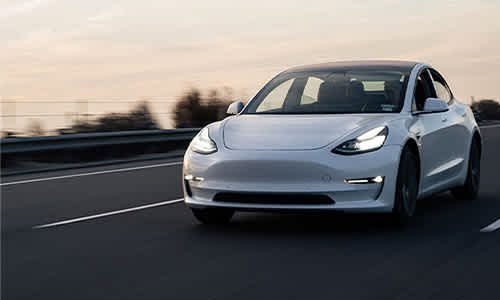Six considerations for financing your new wheels

How do car loans work?
With a car loan (also referred to as a personal loan), you borrow an amount of money that you have to repay within a certain period of time (called 'the term'). It helps to plan out how much you can afford to make in repayments over that duration of time and factor in any other planned life events that may happen during the term of the loan.
You will have to sign a credit contract that specifies the amount borrowed and how you will repay it.
Fixed and variable rate loans
If you shop around you can choose between a fixed or variable rate loan. In a fixed rate loan, the interest rate is locked in for the term of the loan. This means that your repayments will be set, so you know exactly how much you have to repay each month.
But if you make extra payments from time to time and pay out the loan early, you may be charged an early termination fee. With most providers, you may also have to pay account fees and charges.
Secured or Unsecured?
A car loan may be secured or unsecured, depending on whether you put up your car (or other asset) as security for the loan. With a secured loan, you usually pay a lower interest rate than for other kinds of lending -- but it also means that if you fall seriously behind on your repayments, your credit provider has the right to sell your car (or other asset) to get their money back. Secured loans are usually only available for newer cars, because they are more valuable as an asset. With an unsecured loan, you do not need to mortgage your car as security, but you will likely pay a higher rate of interest because the credit provider is taking a bigger risk.

What about dealer finance?
If you buy from a car yard, the dealer might offer to arrange finance for you. While dealer finance might seem convenient you may get a better deal by shopping around. Banks, building societies, credit unions and specialist lending and leasing companies all offer car loans, so check out what's on offer before you go for dealer finance.
More importantly, if you're looking to stick to a budget, look into getting the best credit deal first. This is as important as getting the best price on the car. By shopping around for credit first, you can find the best deal for you without your mind being distracted by that new set of wheels.

Is it worth getting a car lease?
If your new car requirements are mainly for work purposes, a few benefits of getting a car lease is that your employer could make lease payments on your behalf from your pre-tax income, for as long as you're employed with them. This helps to reduce your taxable income, which reduces the income tax you pay. Operating costs such as registration and servicing could be taken into consideration as well, and can include Fringe Benefits Tax based on a forecast that uses the value of the car and the distance you travel (including for personal use) to determine an amount.
If you want to own the car, getting a lease may not be the right option for you. With a lease you rent the car for an agreed period of time, but do not have a right or option to purchase the car. At the end of the period, the lease is terminated and the car sold. You could make an offer for the car, but you will usually need to come up with a large sum of money to buy it -- and the credit provider does not have to accept your offer.
What are the other costs to consider?
Before you get your loan, budget for the full costs of owning a car. There are annual fees for registration and insurance. You may also choose to join a motoring organisation for roadside assistance. On top of that there are ongoing costs like petrol, repairs and maintenance -- even road tolls.
You might decide to get third-party property insurance or full comprehensive insurance for your car. Third-party property insurance covers you for damage to other people's vehicles or property that is not covered by your compulsory comprehensive third party (CTP) insurance. Full comprehensive insurance also covers you for damage to your own car.
Be aware that if your car loan is secured by a mortgage over your car, the insurer may require you to get comprehensive insurance for your car.
You may also like
News, tips and offers straight to your inbox.


